(srpski) Povodom presude za ubistvo devet civila u Bogdanovcima
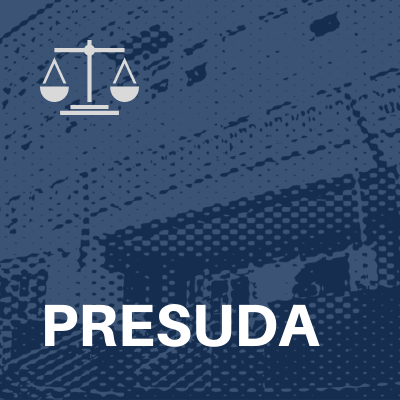
Sorry, this entry is only available in srpski.


Sorry, this entry is only available in srpski.

Sorry, this entry is only available in srpski.
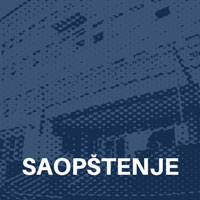

On October 15, 2020, the Higher Court in Belgrade sentenced Nebojša Stojanović to eight years in prison for the murder of prisoner of war Ivan Sivrić in Kožuhe in May 1992. The Humanitarian Law Center believes that the sentence was fair and appropriate for the gravity of the crime, as well as that this is one of the few war crimes trials that was completed without delay and in a short time.
On July 13, 2018, the Office of the War Crimes Prosecutor filed an indictment against Nebojša Stojanović, a member of a volunteer unit controlled by the Serbian army, for killing the prisoner of war Ivan Sivrić in early May 1992 in the village of Kožuhe (near Doboj, BiH). In the evening hours, Stojanović took Sivrić out of the Energoinvest factory yard, where the latter was imprisoned, and then took him to a place called Djelovačka Bara, near the River Bosna, where he killed him in a previously dug grave, by shooting him twice in the head with a pistol.
On the basis of the testimony of the injured party and witnesses – inhabitants of Kožuhe and Stojanović’s comrades-in-arms -, the court determined that Ivan Sivrić was a prisoner of war from the Croatian army, that Stojanović was in Kožuhe at the time of the killing, and that he had taken Sivrić to a local café a few days before the killing, where he threatened to kill him. Witnesses identified Stojanović by the fact that he had what they called a characteristic “Cherokee” haircut at the time of the killing.
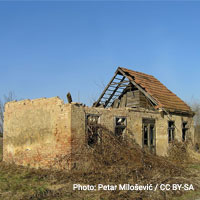
 This year marks25 years since the military and police action “Storm” (Oluja), during which Croatian military forces committed numerous crimes against Serbs living in the area of the so-called Republic of Srpska Krajina. Even after 25 years, justice for the victims of the crimes committed has not yet been achieved, responsibility for which must be carried by the institutions of both Croatia and Serbia. While the anniversary of Operation Storm continues to be celebrated in Croatia, ignoring the atrocities committed during and after that action, Serbian state representatives misuse the victims for political purposes during state-sponsored commemorations of the same event. Both states have a legal and moral obligation to change the relationship to the crimes committed during Operation Storm, and to show that the care of the victims and prosecution of those responsible for war crimes is to be a pillar of future reconciliation.
This year marks25 years since the military and police action “Storm” (Oluja), during which Croatian military forces committed numerous crimes against Serbs living in the area of the so-called Republic of Srpska Krajina. Even after 25 years, justice for the victims of the crimes committed has not yet been achieved, responsibility for which must be carried by the institutions of both Croatia and Serbia. While the anniversary of Operation Storm continues to be celebrated in Croatia, ignoring the atrocities committed during and after that action, Serbian state representatives misuse the victims for political purposes during state-sponsored commemorations of the same event. Both states have a legal and moral obligation to change the relationship to the crimes committed during Operation Storm, and to show that the care of the victims and prosecution of those responsible for war crimes is to be a pillar of future reconciliation.
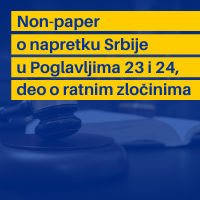
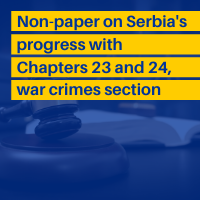 In June 2020, the European Commission (EC) announced its so-called “non-paper”, i.e. a semi-annual report on the current situation with Chapter 23 (Judiciary and Fundamental Rights) and Chapter 24 (Justice, Freedom and Security). Concerning the prosecution of war crimes, Chapter 23 provides for a series of measures and activities that would enable the recommendations for greater efficiency in domestic war crimes trials to be adequately addressed. The measures of the Government of the Republic of Serbia for the implementation of these recommendations are defined by the Action Plan for Chapter 23, and this semi-annual report shows whether and how much progress has made by Serbia in its implementation. The “non-paper” indicates that Serbia is still far from making progress in the field of war crimes, even though Chapter 23 was opened four years ago.
In June 2020, the European Commission (EC) announced its so-called “non-paper”, i.e. a semi-annual report on the current situation with Chapter 23 (Judiciary and Fundamental Rights) and Chapter 24 (Justice, Freedom and Security). Concerning the prosecution of war crimes, Chapter 23 provides for a series of measures and activities that would enable the recommendations for greater efficiency in domestic war crimes trials to be adequately addressed. The measures of the Government of the Republic of Serbia for the implementation of these recommendations are defined by the Action Plan for Chapter 23, and this semi-annual report shows whether and how much progress has made by Serbia in its implementation. The “non-paper” indicates that Serbia is still far from making progress in the field of war crimes, even though Chapter 23 was opened four years ago.

Sorry, this entry is only available in srpski.
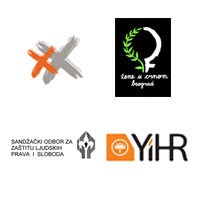
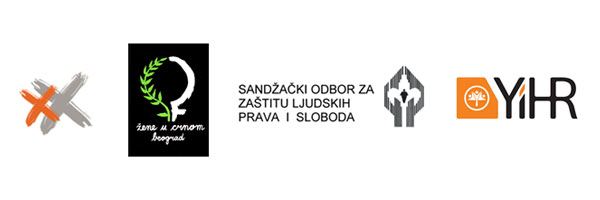
On Thursday, February 27, 2020, it will be 27 years since the crime in Štrpci (Bosnia and Herzegovina), in which members of the Army of the Republic of Srpska (VRS) kidnapped and killed 20 non-Serb civilians, passengers on a train travelling from Belgrade to Bar. The Humanitarian Law Center (HLC), Women in Black, Sandžak Committee for the Protection of Human Rights and Freedoms and Youth Initiative for Human Rights recall the public’s attention to the fact that victims’ families have been waiting for judicial justice in Serbia, and the recognition of their status as family members of civilian victims of war, for 27 years now. For 27 years the public has been waiting for the recognition, accountability and memorialisation of victims by the institutions of Serbia.
The victims of this crime are: Esad Kapetanović, Ilijaz Ličina, Fehim Bakija, Šećo Softić, Rifat Husović, Halil Zupčević, Senad Đečević, Jusuf Rastoder, Ismet Babačić, Tomo Buzov, Adem Alomerović, Muhedin Hanić, Safet Preljević, Džafer Topuzović, Rasim Ćorić, Fikret Memović, Fevzija Zeković, Nijazim Kajević, Zvjezdan Zuličić and one unidentified person. The victims were from both Serbia and Montenegro, from Belgrade, Prijepolje, Bijelo Polje and Podgorica. The oldest victim was 59 and the youngest 16.
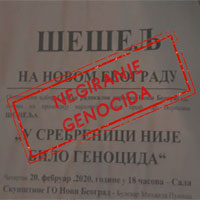
Sorry, this entry is only available in srpski.